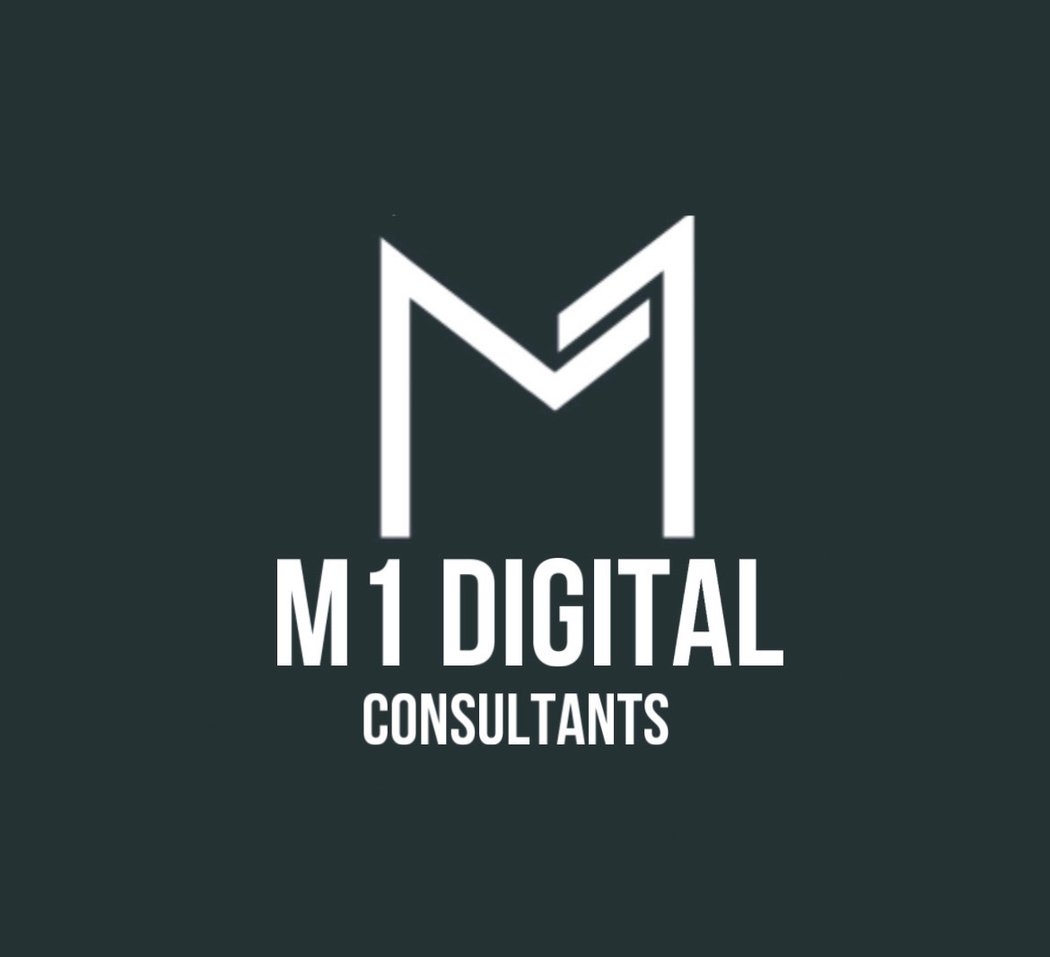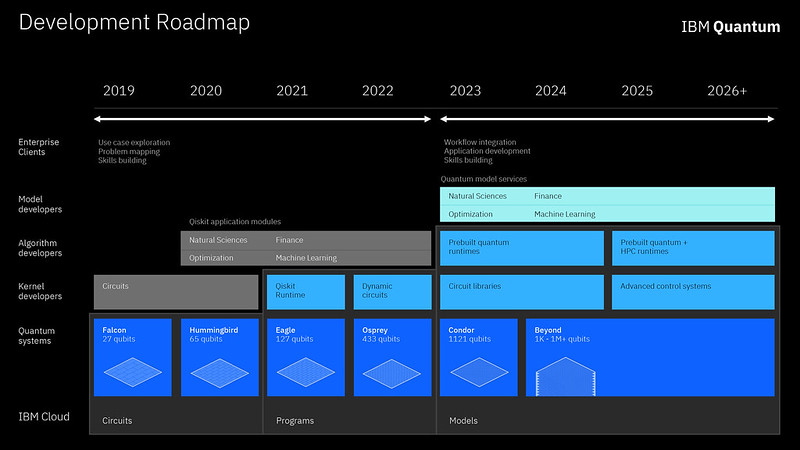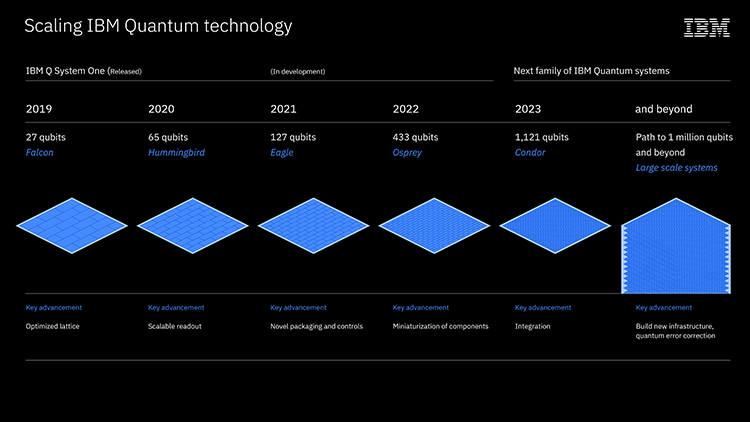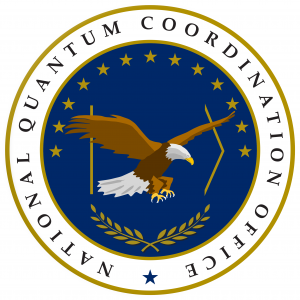We come to the most important topic of this discussion. Do you think the world is actually ready for quantum computing? You mentioned that we haven't reached quantum advantage yet. So they're not better than classical computers just yet. But imagine if we do reach quantum advantage say tomorrow or like a week from now or even six months from now. Do you think the world is ready for quantum computing? Will the companies around the world suddenly all be able to know how to use it, what to use it for? I think people are getting ready. I would say you better get ready because it's really a very dynamic environment. A lot of things are happening. The technology is developing very fast and different to classical computers the scaling behavior of quantum computers is also different. So, it's not like a linear scaling as we are used to in the normal transistor area but it's really scaling with a different behavior and so we expect that in 2023, there is kind of a turning point where then we can demonstrate quantum advantage. You are then better ready to use quantum computers. So, what does it mean using quantum computers?
You should have identified the areas where quantum computers can help you in your industry.
What are the biggest pain points, biggest challenges, where the fit with quantum computers. This requires and also of course that you have a workforce which has a team which knows a bit about quantum and can have the industry expertise and can then also together kind of identify these workloads. I think we are really in a dynamic world where you have to get ready because quantum computers are there and they will develop fast and then there's an advantage and you are better able to use.
Quantum Computing
Quantum Computing
- MultiverseComputing - Quantum Computing for the Financial Industry
- DWave - The Quantum Computing Company
- IonQ:
- IBM - Quantum for Business
- Microsoft - Quantum Computing
- Intel - Reinventing Data Processing with Quantum Computing
- Google - Quantum Computing
- McKinsey & Company - How can your company prepare?
- 451Research: Quantum Technology
- Accenture - How to build a quantum computing workforce.
- Rigetti Computing -
- Amazon Braket -
- The Quantum Consortium:
From the Marvel Studios' Ant-Man and The Wasp movie. Quantum Words Movie Clip
It is said that “Necessity is the mother of invention.” Today we are quickly racing towards a world where our ability to problem-solve is severely limited by our technology.
Are you ready?
Do you think the world is actually ready for quantum computing? Will the companies around the world suddenly all be able to know how to use it, what to use it for?
We expect that in 2023, there is a kind of turning point where we can demonstrate quantum advantage. You then better be ready to use quantum computers.
So, what does it mean to be using quantum computers?
You should have identified the areas where quantum computers can help you in your industry. What are the biggest pain points, biggest challenges, where is the fit with quantum computers. This requires that you have a workforce which knows a bit about quantum and can have the industry expertise and can also identify these workloads.
I think we are really in a dynamic world where you have to get ready because quantum computers are here and they will develop fast and there's an advantage and you are better able to use.
Are you ready?
Learn Early
Do you think more universities should be actively introducing quantum computing into their curricula? Do you think we should do more in terms of education educating the future workforce in that regard?
It's also an exciting topic to learn about and it will have quite some impact in the future. At the universities and in research there is a really dramatic increase in using quantum computers and working on algorithms and so if you look around, the universities expand their programs in quantum computing.
Not only learn about quantum computers but also how to program them, how to use them. You can see YouTube videos where you can dive into detail and how to do it. So that's the university level.
If you go to that company level, you want to educate your workforce in quantum computing, you want to build up a team of experts that they can identify the use cases, and can also lay out a strategy for for making use and of the quantum advantage and integrating it.
The earlier you get in touch with this weird phenomena, the easier it will be for you to grasp it and to think like Zahra Ashktorab said, "you think too classically". I think the earlier we start to to see and visualize and experience quantum behavior, then the more an intuition we can get and having an intuition also helps to then actually become creative in that space.
- Thinking Too Classically: Research Topics in Human-Quantum Computer Interaction, April 2019, ZahraAshktorab,, JustinWeisz, and Maryam. Ashoori
- How to build a quantum computing workforce, November 9, 2020, Accenture Research
Learn Early
Do you think more universities should be actively introducing quantum computing into their curricula? Maybe even on a high school level? Do you think we should do more in terms of education educating the future workforce in that regard? Of course, I mean there is much more to do. It's also an exciting topic to learn about and it will have quite some impact in the future. So you are
better prepared for it. This means there are also different dimensions of course. At the universities, for example, and in research there is a really dramatic increase in using quantum computers and working on algorithms and so if you look around whether it's in Europe or U.S. and everywhere, the universities expand their programs in quantum computing, in the theory, and also using quantum computers there are extracurricular made for as I mentioned before not that only physicists learn about quantum computers but that also quantum computers how to program them how to use them is taught to engineers and chemists and even finance experts etc. So it's really broadening. This is what we see. We also develop actually quite a lot of
tools and also programs where we help to bring together and to explain quantum computing, help people using quantum computers, show them how to program them you, can see for example YouTube videos where you can dive into detail and how to do it and also in collaboration with universities.
So that's the university level. Then if you go to that company level, it's again also in the end you want to also educate your workforce in quantum computing, you want to build up a team of experts that they can identify the use cases, and can also lay out a strategy for for making use and of the quantum advantage and integrating it. In the high school it's an interesting topic also because I personally think the earlier you kind of get in touch with this weird phenomena, the easier it may be for you to grasp it and to think like it right Zahra Ashktorab also said you think too classically. I think the earlier we start to to see and visualize and experience quantum behavior, then the more an intuition we can get and having an intuition also helps to then actually become creative in that space. So I think learning early the way how to do it is of course different than how you do it after you may have studied a certain subject. But I think there are cool things I mean for example a colleague here he looks into quantum games. So using the quantum physics and exploring how to use quantum computers in games and that's also one way to kind of get in touch with it and be excited about it and then
you know about it.
What Is Quantum Advantage
What is quantum advantage?
Quantum advantage is defined as the state where we solve a problem which is of high value with quantum computers which cannot be solved with any of the biggest super computer you can ever build in the world. This is something where we expect this to come at the end of 2023 where we have reached the thousand qubit barrier. There should then be problems which really can be solved and provide the value of with quantum computers.
What Is Quantum Advantage?
What is quantum advantage? So quantum advantage - we define as the state where we solve a problem which is of high value with quantum computers which cannot be solved with any biggest super computer you can ever build in the world. This is something where we expect this to come end of 2023 where we have reached kind of the thousand qubit barrier and have broken this barrier and there should be then problems which really can be solved and provide the value of with quantum computers. Today, as we discussed, these are smaller problems we can solve but we learn a lot right because we learn about how how to write the quantum algorithms which then can also be used with a scaled quantum computer.
Development Roadmap
IBM’s roadmap for building an open quantum software ecosystem
https://www.ibm.com/blogs/research/2021/02/quantum-development-roadmap/
How are quantum computers actually hosted or connected to the cloud?
The development roadmap shows a bit holistically how we integrate the hardware, the software, and also then building the applications. This is an announcement which you see which is a holistic and integrated picture of the full stack development which we do from the hardware, to the software, and also the applications part and providing the service through the cloud.
Because we talked a bit about what do you need to know in order to use quantum computers and of course in the end we want to have like a frictionless development and frictionless use of people using quantum computers.
Development Roadmap
How are quantum computers actually hosted or connected to the cloud? Today, we have a ... perhaps we can
also show the development roadmap in that regard -
which also shows a bit holistically how we integrate the hardware, the software, and also then the building the applications and we need to connect, of course, the quantum computer which is sitting here to classical computers and through these classical computers in the cloud you actually have the access. So that's why you can connect with your mobile phone or with your classical computer to the cloud and can access our quantum computers. But of course there's a lot of things behind which may go a bit too much into detail to explain here, but we are because you run certain circuits and you run algorithms and we are continuously developing that the architecture which is actually has been announced today. So, this is really brand new. This is an announcement of today which you see which is a holistic and integrated picture of the full stack development which we do from the hardware to the software and also the applications part and providing then also the service through the cloud. Because we talked a bit about what do you need to know in order to use quantum computers and of course in the end we want to have like a frictionless development and frictionless use of people using quantum computers. This means if you are in chemistry and your job is to design new drugs then you should kind of use the software and the tools which are used today but behind the scene quantum computers are used in order to solve the problems. But you should not need to learn kind of special things in order to use them in the most efficient way.
Technology Roadmaps
Where are we today with quantum computers?
Today it's really exciting as we have increased the number of qubits, we increased the quality of the measurements, and the control of the qubits. We have also designed and engineered the system to be more robust and stable to kind of improve really all the different parameters.
At the end of last year in September, we have announced the roadmap which we are pursuing. In this roadmap, you can see the different quantum processors, and last year we have demonstrated 'hummingbird'. It has 65 cubits. We are now on a path to increase the number of qubits continuously. So this year, we will demonstrate a 127 qubit chip which is 'eagle' and as you can imagine for each of those steps, we have significant technical improvements which are implemented in these different generations. In 2022, we show a 443 qubit chip and then it's really getting very exciting because we will break the 1,000 qubit barrier in our 'condor' chip. Again technological improvements are required for this. This will allow the world to solve more complex problems.
Technology Roadmaps
Where are we today with quantum computers, then? Today it's really exciting as I mentioned we have increased the number of qubits, we increased the quality of the measurements, and the control of the qubits. We have also
designed and engineered the system to be more robust and stable to kind of improve really all the different parameters. Just at the end of last year in September, we have also announced the roadmap which we are pursuing. In this roadmap, you actually see the different processors, the different quantum processors, and last year we have demonstrated the so-called 'hummingbird'. It has 65 cubits. We are now on a path to really increase the number of qubits continuously. So this year, we will demonstrate a 127 qubit chip which is 'eagle' and as you can imagine for each of those steps, we have significant technical improvements which are implemented in these different generations. In 2022, we show a 443 qubit chip and then it's really getting very exciting because we kind of break the 1,000 qubit barrier and reach more than 1,000 cubits in our 'condor' chip. Again technological improvements are required for this. We are working on them and this demonstration really is then a demonstration of above thousand qubits and it will allow us and also the world of course more complex problems to be solved. This is integrated also with a whole infrastructure right because it's not only about the hardware there is also the infrastructure around the software, how to control, how to write software, developing applications, etc. So there are lots of things which are going concurrently.
Business Use Cases
- A Threshold for Quantum Advantage in Derivative Pricing
- Case Study: Exploring quantum computing in financial services
- Case Study: Pioneering quantum computing in R&D
- Case Study: Applying Quantum Computing to Digital Marketing
- Will quantum computing drive the automotive future?
- Social Network Analysis - Who are social influencers?
- Factoring - Prime factorization using quantum annealing
- Immunization Strategy
- Nurse Scheduling
- Save on Foods: Quantum Computing in Grocery
Business Use Cases
An Introduction to Quantum Computing
IBM's Dr. Talia Gershon (Senior Manager, Quantum Research) explains quantum computing to 5 different people; a child, teen, a college student, a grad student and a professional.
Google's Marissa Giustina addresses some basic questions about quantum computing. You’ll learn about what makes a quantum computer “quantum”, and what differentiates it from a regular computer. In addition, you’ll get to see what Google’s current quantum processors look like, and see the stack of hardware infrastructure needed to run the full system.
Terminology
- Bloch Sphere: a geometrical representation of a qubit

- Qubit: the quantum version of the classic binary bit
- Qubit Bias: degree to which a variable tends to a particular outcome
- Qubit Coupling Strength: degree to which two variables agree
- Superposition: any two quantum states that can be added together ("superposed") and the result will be another valid quantum state
- Hadamard Gate:
- CNOT Gate:
- Entanglement:
- Bell State:
- Ising Model:
- QAOA: Quantum Approximate Optimization Algorithm
- QUBO: Quadratic Unconstrained Binary Optimization
- Minimum Vertex Cover
- NISQ: Noisy Intermediate-Scale Quantum
- NP (Nondeterministic Polynomial Time)
- Adiabatic quantum computation:
- Quantum Annealing:
- Quantum Anomaly:
- Quantum Entanglement:
- Quantum Information Science:
- Quantum Supremacy:
- Quantum Technology:
- Quantum Tunnelling:
- Quantum Void (aka Quantum Vacuum State)
- Quantum Volume:
The two main approaches to building quantum computers are quantum annealing (QA) and gate model (GM).
An Introduction to Quantum Computing
National Quantum Initiative
Welcome to quantum.gov! the home of the National Quantum Initiative and ongoing activities to explore and promote Quantum Information Science.
National Quantum Initiative
Quantum Tools & Problem Formulation
- Qiskit:
- Quirk:
- Quantum Peep
- Programming:
- Python:
- Problem Formulation: Learn to formulate small binary quadratic model (BQM) problems
- DWave Login: Sign up for a demonstration account














